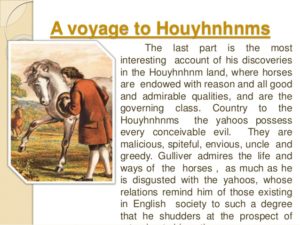 People of all ages need to connect with good books. Those in school and college should always read as much as possible, especially “foundation” literature that asks them to think beyond what may be trendy and comfortable. Above all, education should not be organized around a politically correct curriculum.
People of all ages need to connect with good books. Those in school and college should always read as much as possible, especially “foundation” literature that asks them to think beyond what may be trendy and comfortable. Above all, education should not be organized around a politically correct curriculum.
Just a generation ago, high school and college students were introduced to writers like Jonathan Swift and Henry David Thoreau. Everyone knew that the lines between fiction and nonfiction were blurred. We could learn nonfiction-type truth about life by studying novels and short stories. We came to accept that nonfiction was only partially so.
 Gulliver’s Travels was much more than a cartoon or Disney-like fantasy about big and little people. It was a novel, for sure, but one that got at universal political dynamics that haven’t changed much over the centuries. The final part of the book chronicles the castaway Gulliver’s “Voyage to the Land of the Houyhnhnms,“ as Wikipedia describes: “He is abandoned in a landing boat and comes upon a race of hideous, deformed and savage humanoid creatures to which he conceives a violent antipathy. Shortly afterwards, he meets the Houyhnhnms, a race of talking horses. They are the rulers while the deformed creatures called Yahoos are human beings in their base form.”
Gulliver’s Travels was much more than a cartoon or Disney-like fantasy about big and little people. It was a novel, for sure, but one that got at universal political dynamics that haven’t changed much over the centuries. The final part of the book chronicles the castaway Gulliver’s “Voyage to the Land of the Houyhnhnms,“ as Wikipedia describes: “He is abandoned in a landing boat and comes upon a race of hideous, deformed and savage humanoid creatures to which he conceives a violent antipathy. Shortly afterwards, he meets the Houyhnhnms, a race of talking horses. They are the rulers while the deformed creatures called Yahoos are human beings in their base form.”
Science in the 18th-century was fascinating at all levels of society. Amateurs rightly felt they could make a contribution. Christians knew that discovering scientific truth was consistent with knowing how God made the world. Evolution was being thought about a lot in this way.
Jonathan Swift could describe the world of horses just as they were in the natural world. They don’t lie or cheat or steal, but actually live in a utopian-like society–that is, just the opposite of humans or Yahoos. Try as they might, students can’t easily dismiss Swift’s challenging findings.

